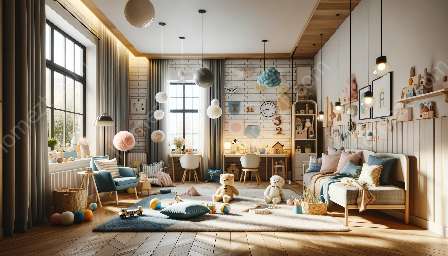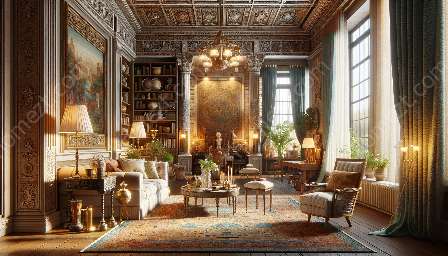Art and accessories play a crucial role in interior design and styling, offering a means of personal expression and enhancing the ambiance of a space. However, it's essential to consider the ethical implications of sourcing art and accessories when curating a space. Ethical sourcing involves mindful choices that prioritize fair labor practices, sustainable materials, and cultural respect.
The Significance of Ethical Sourcing
Embracing ethical sourcing practices for art and accessories is of paramount importance as it helps support communities, protect the environment, and preserve cultural heritage. Ethical sourcing contributes to creating a positive impact and promoting responsible consumption in the design industry.
Impact on Interior Design and Styling
When incorporating ethically sourced art and accessories into interior design, the overall aesthetic and feel of a space can be enhanced. Knowing the origin of each piece allows for storytelling and a deeper connection to the items within a design scheme. Ethical sourcing also aligns with the growing consumer demand for conscious and sustainable design solutions.
Considerations for Ethical Sourcing
Designers and stylists aiming to integrate ethical sourcing into their practice should consider several aspects, including:
- Supplier Transparency: Choosing suppliers who have transparent supply chains and ethical working conditions can ensure that art and accessories are sourced responsibly.
- Social Impact: Supporting artisans and communities through fair wages and respectful partnerships contributes to the social impact of ethical sourcing.
- Environmental Responsibility: Opting for sustainable materials and production processes reduces the environmental footprint of art and accessories within interior design.
- Cultural Sensitivity: Respecting cultural traditions and heritage when sourcing art and accessories is essential for ethical design practices.
Integrating Ethical Sourcing into Interior Design
Integrating ethical sourcing into interior design and styling involves a thoughtful approach to selection and curation. Designers can explore the following strategies:
- Research and Due Diligence: Thoroughly researching suppliers and understanding their ethical practices is crucial for making informed and conscientious choices.
- Collaborate with Ethical Brands: Partnering with ethical brands and artisans allows for the creation of unique, socially responsible design narratives.
- Education and Awareness: Educating clients and consumers about the importance of ethical sourcing can foster a greater appreciation for consciously curated design elements.
- Certifications and Standards: Choosing art and accessories that adhere to recognized ethical and sustainable standards ensures credibility and reliability in sourcing.
Art and Accessories in Interior Design
Art and accessories serve as the finishing touches in interior design, adding personality and character to a space. When sourced ethically, these elements not only elevate the aesthetic appeal but also contribute to a more meaningful and responsible design narrative.
Incorporating Ethically Sourced Art
When selecting art for interior spaces, ethical considerations can influence the choice of artists, mediums, and production methods. Art that is ethically sourced can convey authenticity and cultural significance, enriching the overall ambiance of a room.
Embracing Ethical Accessories
Accessories such as textiles, sculptures, and functional objects can be selected based on their ethical origins and sustainable materials. Integrating ethical accessories reflects a conscientious approach to detail and contributes to a cohesive and thoughtful design.
The Intersection of Ethical Sourcing and Interior Design and Styling
The fusion of ethical sourcing and interior design and styling creates a harmonious blend that resonates with contemporary values. The way art and accessories are sourced and incorporated into interior spaces reflects the evolving landscape of design, emphasizing ethics, sustainability, and cultural appreciation.
Conclusion
The ethical sourcing of art and accessories is an essential consideration for interior designers and stylists, shaping the narrative of spaces while promoting positive impact and responsibility. By prioritizing ethical choices and mindful curation, the design industry can contribute to a more sustainable and culturally sensitive approach to interior design and styling.


























